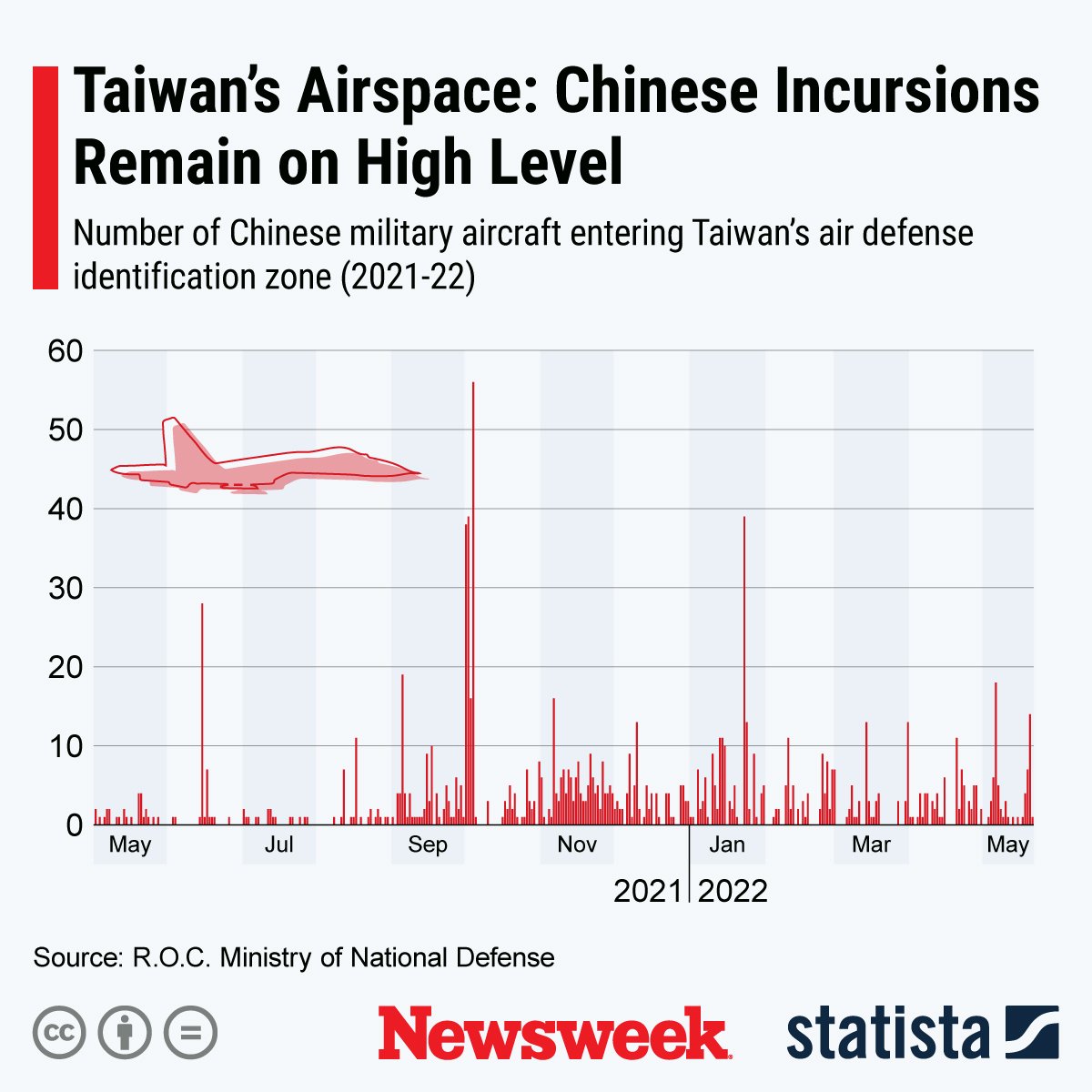President Joe Biden's remarks on Monday about the U.S. "commitment" to defend Taiwan militarily if the island is attacked by China appears to represent a more aggressive approach than previous presidents have taken.
While Biden said that the U.S. policy of so-called "strategic ambiguity" on Taiwan had not changed, his comments are his strongest warning yet to China that the U.S. would defend Taiwan if it's attacked.
Biden may feel emboldened to take a harder line against China following the strategic failures of the Russian invasion of neighboring Ukraine, where Russian forces could not seize the capital city of Kyiv during the first stage of the war and have subsequently fallen back.
The president directly linked the issue of a hypothetical Chinese attack on Taiwan to the Russia-Ukraine conflict on Monday as he answered a question about Taiwan's defense.
Biden told reporters in Tokyo that China was "already flirting with danger right now by flying so close and all the maneuvers that they are undertaking," referring to Chinese incursions into Taiwan's airspace.
He said the U.S. responsibility to defend Taiwan was "even stronger" following the Russian invasion.
"That's the commitment we made," the president.
Biden added that if China invaded Taiwan it would "dislocate the entire region and be another action similar to what happened in Ukraine."
China considers Taiwan to be part of its sovereign territory and the U.S. has pursued a One China policy that recognizes just one Chinese government—the one based in Beijing.
"America is committed to a One China policy but that does not mean China has the jurisdiction to use force to take Taiwan," Biden said on Monday.
Taiwan's government has been left diplomatically isolated and most of the world's nations do not have formal diplomatic relations with the island, including the U.S.
Chinese President Xi Jinping has previously said the "reunification" of Taiwan with China is inevitable and has not ruled out the use of force.
The U.S. has long pursued a policy of strategic ambiguity toward Taiwan by not publicly committing to defend the island from a Chinese attack but not saying the U.S. wouldn't intervene either.
This chart by Statista shows Chinese incursions into Taiwanese airspace over the last year.

Washington also sells Taiwan's government weapons under the terms of the Taiwan Relations Act. That legislation requires the U.S. to provide Taiwan with the means to defend itself.
Biden has previously caused controversy over similar remarks about Taiwan. In August, 2021, the president told ABC News that the "we would respond" if a NATO country was attacked and added "same with Japan, same with South Korea, same with Taiwan."
In October, Biden was asked during a televised townhall event if the U.S. would defend Taiwan if China attacked and responded: "Yes, we have a commitment to do that."
On both occasions, the White House appeared to scramble to explain that Biden's remarks did not indicate a change in policy. On Monday, Biden prefaced his comments by saying that U.S. policy "has not changed."
The president's most recent comments come amid a series of apparent Russian failures in Ukraine as the U.S. and its Western allies have provided military and humanitarian support to the Ukrainian government. Biden recently approved a further aid package worth almost $40 billion.
President Vladimir Putin's regime has been hit by crippling sanctions since Russia launched what it described as a "special military operation" on February 24, while Russian forces have retreated from the Ukrainian city of Kharkiv, the country's second largest.
Biden may feel that his strategy of providing aid to Ukraine has been successful, while a traditional geopolitical adversary has suffered diplomatic isolation and a potentially humiliating military defeat.
Similar tactics might come into play in the event of a Chinese attack on Taiwan.
However, the president said on Monday that he believed a Chinese invasion of the island "will not happen, it will not be attempted" and would depend on "how strong the world makes clear that that kind of action is going to result in long term disapprobation."
Newsweek has asked the White House for comment.

Uncommon Knowledge
Newsweek is committed to challenging conventional wisdom and finding connections in the search for common ground.
Newsweek is committed to challenging conventional wisdom and finding connections in the search for common ground.
About the writer
Darragh Roche is a U.S. News Reporter based in Limerick, Ireland. His focus is reporting on U.S. politics. He has ... Read more





